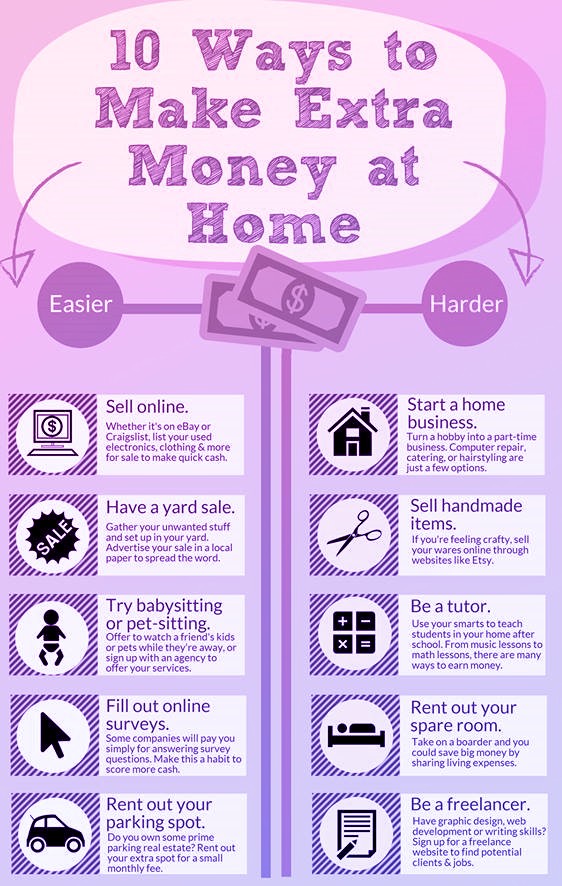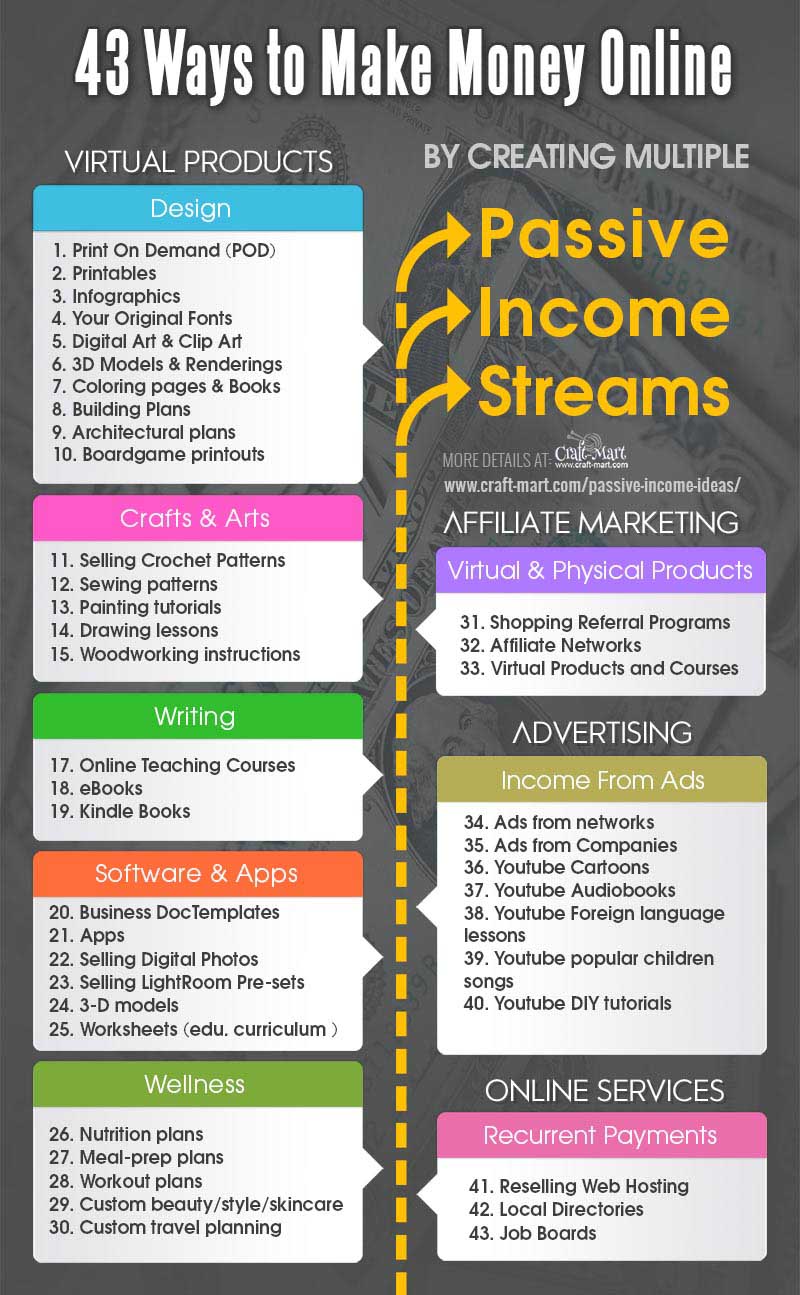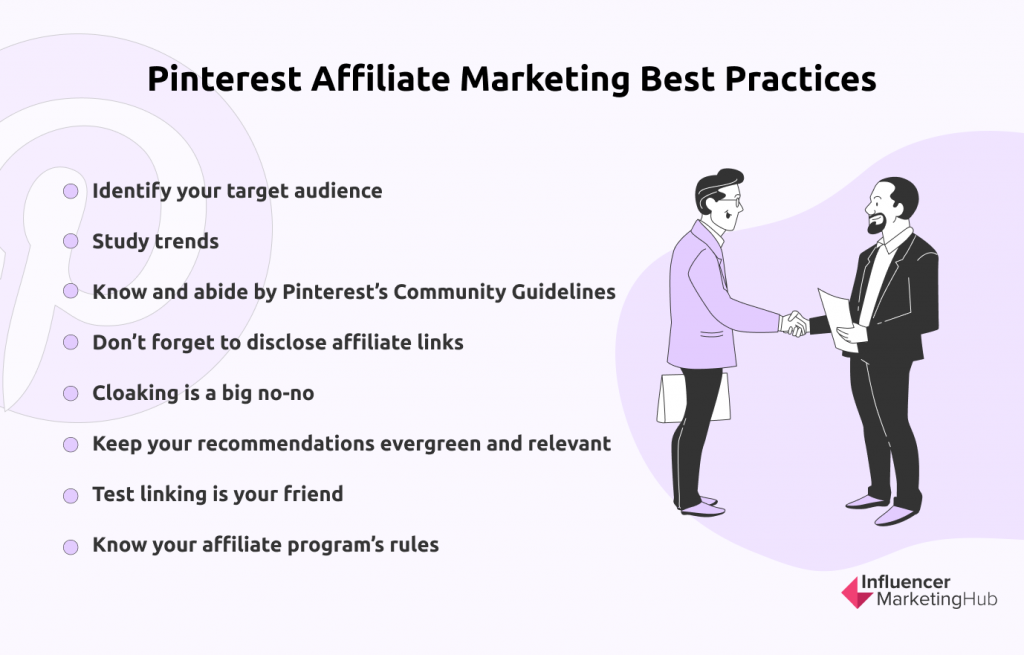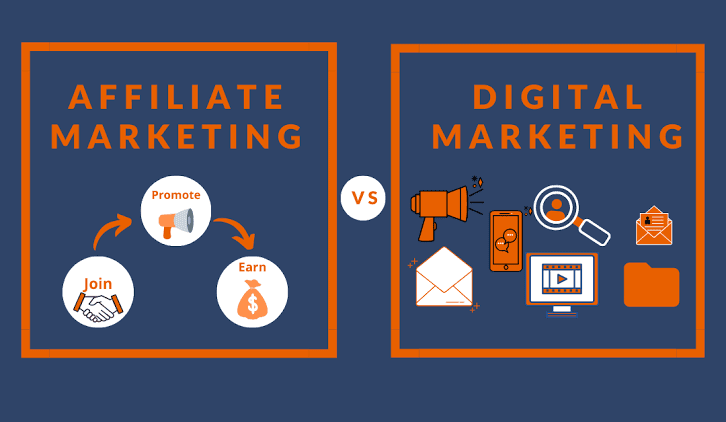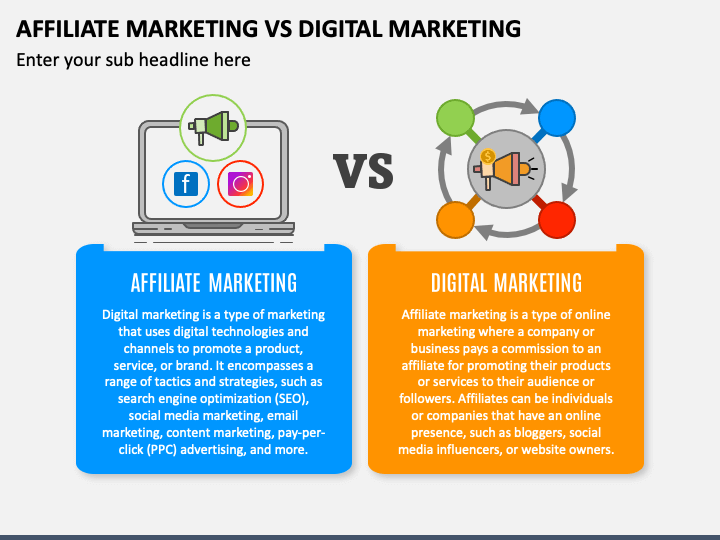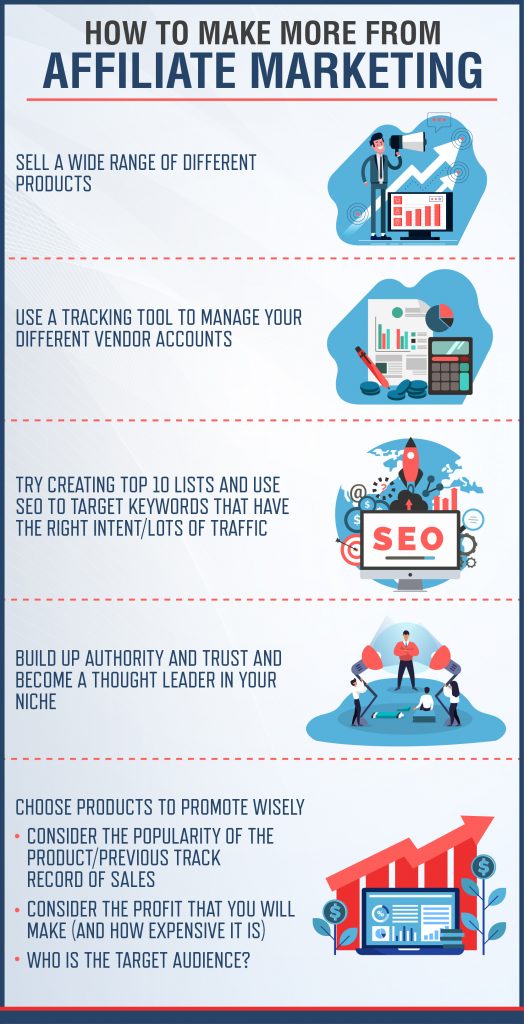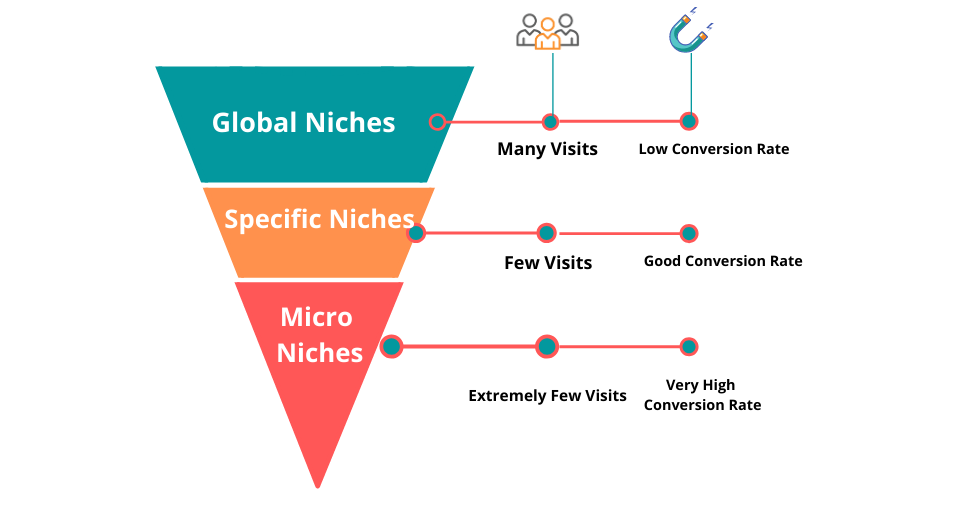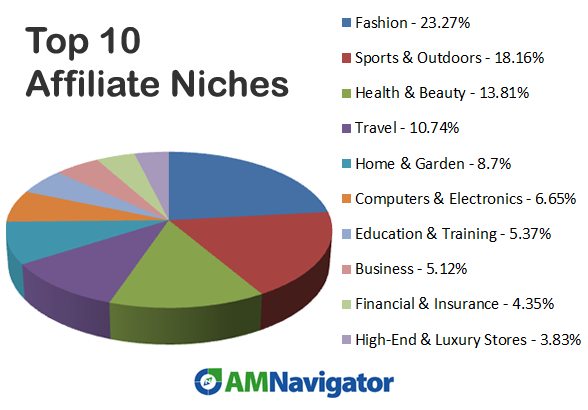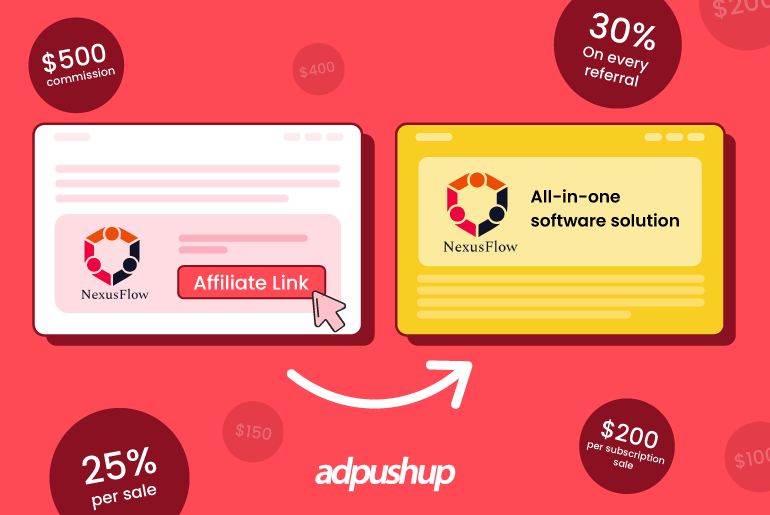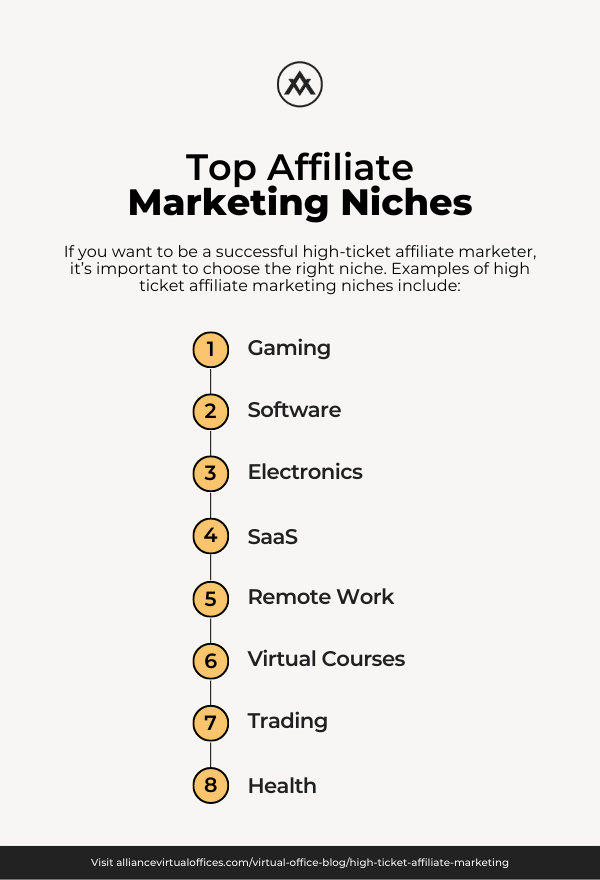Ideal Passive Incomes:
Affiliate Marketing, Tips, Advice And Reviews

Table of Contents
ToggleHow to Make Money Online For Beginners From Home
Are you interested in making money online but not sure where to start? Well, you’re in luck! In this article, we’re going to dive into the ultimate guide for beginners on how to make money online. Whether you’re looking to make some extra cash on the side or build a full-time online business, we’ve got you covered.
Making money online may seem overwhelming at first, but with the right information and guidance, it can be a rewarding and lucrative endeavor. In this guide, we’ll explore various methods and strategies that you can use to start earning money from the comfort of your own home. From freelancing and affiliate marketing to online tutoring and selling products online, there are countless opportunities waiting for you. By the end of this article, you’ll have a good understanding of the different avenues available to you and the steps you need to take to get started. So, grab a cup of coffee and get ready to learn how to make money online!
The Ultimate Guide for Beginners: How to Make Money Online
In today’s digital age, the opportunities to make money online are endless. Whether you’re looking to supplement your income or start a full-fledged business, the internet provides a platform for anyone to create a successful online venture. However, navigating the vast online world can be overwhelming, especially for beginners. This ultimate guide will walk you through the steps of making money online, from choosing the right platform to building a sustainable online business.


Choosing the Right Online Platform
The first step in making money online is to choose the right platform for your venture. With countless options available, it’s important to research and evaluate different online platforms to find the one that aligns with your goals and objectives.
Researching Different Online Platforms
When researching online platforms, consider factors such as the platform’s reputation, user reviews, and the specific features and tools it offers. Some popular online platforms include e-commerce platforms, blogging platforms, and social media platforms.
Considering the Cost and Fees Involved
Another crucial aspect to consider is the cost and fees involved in using a particular online platform. Some platforms may have upfront costs or monthly fees, while others may charge transaction fees or take a percentage of your earnings. It’s essential to weigh the costs against the potential benefits before committing to a platform.
Evaluating the User-Friendliness of the Platform
Lastly, evaluate the user-friendliness of the platform. Is it easy to navigate and use? Do they provide resources and support to help beginners get started? A user-friendly platform will save you time and frustration, allowing you to focus on growing your online business.
Identifying Profitable Online Business Opportunities
Once you’ve chosen the right platform, it’s time to identify profitable online business opportunities. Here are a few popular options:
Exploring E-commerce and Dropshipping
E-commerce involves selling physical products online, either through your own website or platforms like Amazon or Shopify. Dropshipping, on the other hand, allows you to sell products without having to manage inventory or fulfill orders. Instead, you partner with a supplier who handles the storage and shipping of products on your behalf.
Understanding Affiliate Marketing
Affiliate marketing involves promoting other companies’ products or services and earning a commission for each sale or lead generated through your referral. You can join affiliate programs offered by companies within your niche and promote their products through various channels such as your website, blog, or social media.
Creating and Selling Digital Products
If you have expertise or a passion for a particular subject, creating and selling digital products can be a lucrative online business opportunity. Digital products can include e-books, online courses, templates, or even software. The advantage of digital products is that they can be created once and sold repeatedly without the need for physical inventory.
Building an Online Brand and Presence
To succeed in the online world, it’s crucial to build a strong brand and establish your presence. Here are some steps to follow:
Defining your Target Audience
Before creating your online brand, it’s important to define your target audience. Who are you trying to reach with your products or services? Understanding your target audience will help you tailor your marketing efforts and create content that resonates with them.
Developing a Unique Brand Identity
A strong brand identity sets you apart from the competition and creates a memorable impression on your audience. Consider elements such as your brand name, logo, color palette, and tone of voice that align with your target audience and the image you want to convey.
Creating a Professional Website or Blog
Your website or blog serves as the online hub for your business. Make sure it reflects your brand identity and provides valuable content to your audience. Additionally, optimize your website for search engines to increase visibility and attract organic traffic.
Creating High-Quality Content That Attracts Visitors
Creating valuable content is key to attracting visitors to your online platform. Here are some tips to keep in mind:
Understanding the Importance of Valuable Content
Valuable content is content that provides useful information, solves problems, or entertains your audience. By consistently delivering valuable content, you establish yourself as an authority in your niche and build trust with your audience.
Using SEO Techniques to Improve Visibility
Search engine optimization (SEO) involves optimizing your content and website to rank higher in search engine results. This increases your chances of attracting organic traffic from people searching for relevant keywords in your niche.
Engaging with your Audience through Social Media
Social media platforms offer a powerful way to connect with your audience and promote your online business. Create engaging content, interact with your followers, and leverage social media tools to expand your reach and drive traffic to your online platform.


Monetizing your Online Platform
Once you’ve built an online presence and attracted an audience, it’s time to monetize your platform. Here are some popular methods:
Implementing Advertisements on your Website
You can earn revenue by displaying ads on your website. Platforms like Google AdSense enable you to place ads on your website and earn money every time a visitor clicks on an ad.
Earning Through Sponsored Content
As your online platform grows, you may attract sponsors who are willing to pay you to promote their products or services. Sponsored content involves creating content that promotes a sponsor’s brand, either through blog posts, videos, or social media posts.
Exploring Online Courses and Coaching
If you have expertise in a particular field or have achieved success in a specific area, consider creating and selling online courses or offering coaching services. This allows you to monetize your knowledge and help others achieve their goals.
Understanding the Basics of Online Marketing
To effectively promote your online business, it’s important to understand the basics of online marketing. Here are a few key strategies:
Utilizing Email Marketing Strategies
Email marketing involves building an email list and sending targeted emails to your subscribers. By providing valuable content and promoting your products or services, you can nurture relationships with your audience and convert them into customers.
Optimizing your Website for Search Engines
By implementing SEO strategies such as keyword research, optimizing meta tags, and creating high-quality content, you can improve your website’s visibility in search engine results. This drives organic traffic and increases the chances of converting visitors into customers.
Managing Social Media Marketing Campaigns
Social media marketing involves creating and executing campaigns on platforms like Facebook, Instagram, or LinkedIn to promote your brand, engage with your audience, and drive traffic to your online platform. Develop a content calendar, analyze your metrics, and constantly refine your strategies to maximize your social media impact.

Building a Sustainable Online Business
Building a sustainable online business requires careful planning, ongoing efforts, and adaptability. Here are some steps to help you achieve long-term success:
Tracking your Financials and Setting Targets
Establish a system to track your financials, including revenue, expenses, and profits. Additionally, set financial targets and goals to ensure you’re continually striving for growth and improvement.
Scaling your Business for Growth
As your online business grows, be prepared to scale your operations. This may involve outsourcing tasks, hiring employees, or investing in new technologies to accommodate increased demand.
Staying Updated with Industry Trends and Innovations
The online world is constantly evolving. Stay up-to-date with the latest industry trends and innovations to ensure you’re offering cutting-edge products or services and staying ahead of your competition.
Enhancing your Online Business Skills
To continuously improve and succeed in the online world, consider the following strategies:
Continuously Learning and Upgrading your Knowledge
The online landscape is ever-changing, so it’s essential to stay updated with the latest industry developments. Invest in ongoing learning through courses, webinars, or industry conferences to upgrade your skills and knowledge.
Networking with Successful Online Entrepreneurs
Networking with successful online entrepreneurs can provide valuable insights, advice, and inspiration. Join online communities, attend networking events, or seek out mentorship opportunities to connect with like-minded individuals.
Seeking Mentors and Joining Online Communities
Mentors can provide guidance, support, and accountability as you navigate your online journey. Seek out experienced individuals who have achieved success in your desired field and reach out for mentorship. Additionally, join online communities where you can engage with peers, share experiences, and learn from one another.


Overcoming Obstacles and Challenges
Building an online business comes with its fair share of obstacles and challenges. Here are a few common ones and strategies to overcome them:
Dealing with Competition in the Online Market
Competition is inevitable, but you can differentiate yourself by offering unique value, providing exceptional customer service, and constantly innovating to stay ahead of your competitors. Additionally, focus on building strong relationships with your audience to create customer loyalty.
Managing Time and Avoiding Procrastination
Time management is crucial in the online world, where distractions are abundant. Set specific goals, prioritize tasks, and develop a schedule that allows for focused work and breaks. Use productivity tools and techniques to stay on track and avoid procrastination.
Handling Customer Support and Feedback
Providing excellent customer support is essential for building a positive reputation and retaining customers. Respond promptly to inquiries, address concerns or complaints with empathy and professionalism, and actively seek feedback to continuously improve your products and services.
Conclusion
Making money online is within reach for anyone willing to put in the time, effort, and dedication required. By following this ultimate guide, you’ve gained valuable insights into choosing the right online platform, identifying profitable business opportunities, building an online brand, creating high-quality content, monetizing your platform, and overcoming obstacles. It’s time to take the first steps towards making money online, embrace continuous growth, and adapt to the ever-evolving digital world. The opportunities await you, so seize them and embark on your journey to online entrepreneurship.
Explore More Articles
- Online Tutoring Try Sharing Your Knowledge And Earning Money
- Work From Home Jobs For Extra Income Your Ultimate Guide
- Earn Money by Watching Videos. Legit Way All is Explained
- 6 Benefits For Working From Home Making Money With Affiliate Marketing
- Affiliate Marketing High Ticket Items: Build a Business In 5 Weeks
- 5 Key Benefits of Becoming an Affiliate Marketer
- 10 Legitimate Ways to Make Money Online
- Dropshipping Explained And Building An E-Commerce Empire



